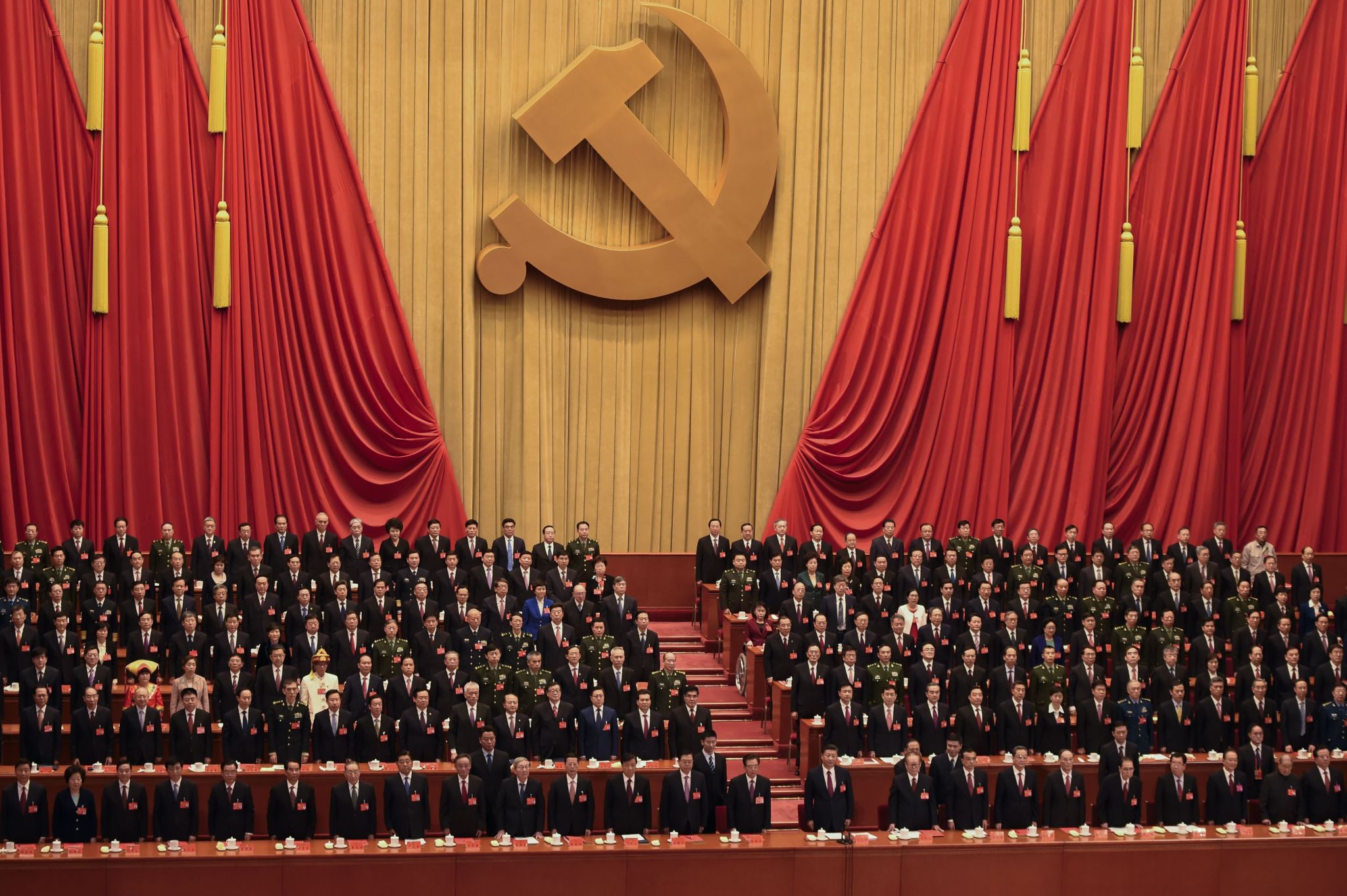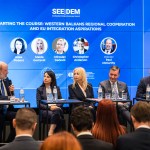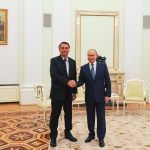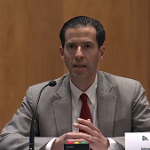Dr. Daniel Twining Addresses China’s Global Repres…
Washington, DC – President of the International Republican Institute (IRI) Dr. Daniel Twining provided opening remarks at “Sanctioned Voices: Spotlighting China’s…
Foreign authoritarian actors are taking an increasingly aggressive approach to exerting influence globally – exporting their authoritarian models, undermining democratic governance, and challenging U.S. global leadership. IRI’s Countering Foreign Authoritarian Influence (CFAI) programming equips democracies with the tools they need to push back through cutting-edge research and support for on-the-ground partners.

To help bolster democracies against the predations of malign actors like China and Russia, IRI’s CFAI programming equips citizen groups, the media, government officials, political parties, and the private sector with the knowledge and tools to expose and counter foreign authoritarian influence.
Twenty-first century authoritarians have twenty-first century toolkits – using economic leverage, information operations, digital disinformation, and the sale of repressive technologies to prop up other repressive states and place pressure on democratic actors. But these tools are often poorly understood, as are the ways by which democratic governments and civil societies can work together to fight back.
That’s why IRI’s three-step approach to combating authoritarian influence begins with commissioning and sharing world-class research on the ways that China and Russia operate:
To date CFAI has partnered with researchers in more than 45 countries to demonstrate their vulnerabilities and the tactics used to exploit them. CFAI also partners with IRI’s regional divisions to foster comparative understanding of authoritarian actors to inform regional-specific programming. For example, in Latin America, IRI is conducting public opinion research on PRC influence to develop tailored advocacy and public awareness initiatives on PRC engagement that resonate with the broader populace. Through such research, IRI is building a knowledge base about China’s on the ground impact around the world and the elements of effective democratic resilience, as well as a cohort of researchers equipped to knowledgably tackle the subject in their own countries going forward.
Research is only valuable if it equips the right people with the tools to make the right decisions. Accordingly, the second step in IRI’s CFAI process involves equipping actors with the resources to bolster democratic resilience. IRI provides material and technical support to grassroots activists in every region of the world to develop and execute evidence-based, context-specific initiatives that draw attention to foreign meddling and the resultant impact on democracy and demand action and accountability from their governments to counter it.
The third step in IRI’s CFAI process involves leveraging IRI’s global political networks to connect local civic actors and policymakers to collaborate on the development and adoption of policies to counter authoritarian influence. Through such engagements, IRI helps overcome barriers to political action, strengthens trust between civic actors and policymakers, and supports dialogues on strategies for enhancing democratic resilience. As part of these efforts, IRI is cataloguing the effective elements of the democratic response and fostering a global network of partners committed to democratic solidarity against authoritarian influence. In Central and Eastern Europe, for example, IRI convenes political actors to strengthen policy responses to PRC coercion of European nations, as seen tangibly in the European Union’s emerging Anti-Coercion Instrument.
By engaging stakeholders across sectors, IRI’s work promotes broad awareness of authoritarian tactics and the keys to shoring up vulnerable democratic institutions.
The CCP undermines democratic processes in vulnerable countries by exploiting governance gaps and working to obscure the risks of engagement with Beijing. While Chinese entities conclude infrastructure investment deals that bring financial leverage and corrupt benefits to elites, the PRC uses various means to simultaneously shape the information space and influence domestic political decision-making in its favor. China employs these “sharp power” tools more aggressively as democracies begin to push back against its malign behavior.
IRI has developed and implemented a framework to build resiliency against growing PRC interference through its flagship Building Resiliency for Interconnected Democracies in Global Environments (BRIDGE) initiative, funded by the National Endowment for Democracy (NED). Through BRIDGE, IRI has developed and refined the three-step approach described above, working with partners in more than 35 countries to identify channels for PRC authoritarian influence, as well as opportunities for resilience.
Through these initiatives, IRI and its partners throughout the globe are working together to develop and implement effective policy responses to PRC interference, translating key lessons into actionable steps that CSOs, media, and policymakers can use to expose and counter PRC influence and interference.
The Kremlin’s malign influence campaign is more opportunistic than the PRC’s but has the same destructive impact on democratic institutions. The Kremlin’s main objective is to keep Russia’s political elite in power indefinitely and secure its kleptocracy. Suppressing dissent within Russia is a key component of keeping the elite in power, as is undermining democracy in other countries.
To exert its malign influence in other countries, the Kremlin employs a variety of tactics with the overarching goal of undermining democracy and backing client governments. Among other approaches, the Kremlin actively seeks to destroy values-based alliances, preferring to deal bilaterally with weak or weakened states. It also employs a range of tactics – from sharing surveillance technology to training police in violent riot suppression tactics – to eliminate all domestic opposition (politically active citizens, free media, and religious minorities) who might otherwise challenge its ally governments.
IRI addresses these threats by empowering local politicians, citizen groups, media, and researchers with data and tools necessary to counter the impact of the Kremlin’s malign influence, building national and transnational alliances, and equipping key implementers with research and data essential to design and implement successful interventions tailored for the local context.
Washington, DC – President of the International Republican Institute (IRI) Dr. Daniel Twining provided opening remarks at “Sanctioned Voices: Spotlighting China’s…

The International Republican Institute (IRI) held its fifth annual Southeastern Europe Democracy Summit (SEE|DEM) in Brussels, Belgium on Tuesday, 16…
The International Republican Institute (IRI) released the following statement after the Putin regime sentenced prominent pro-democracy Russian statesman Vladimir Kara-Murza…
“Nearly everywhere in the world, legislatures are consistently the least popular branch of government — a fact that has been…
Washington, DC – The International Republican Institute (IRI) issued the following statement after the regime in Iran executed the first…
“The stunning courage shown by Iran’s young World Cup team in support of the ongoing protest movement exemplifies the bankruptcy…
“The COP27 climate conference drew to a close this week on much the same lines as the previous meeting: calling…
“Xi Jinping is poised to make history this month when the 20th National Congress of the Chinese Communist Party grants…
Today marks the second anniversary of Belarus’s infamous 2020 presidential election, in which dictator Alexander Lukashenko defied the will of…

“The presidents of Argentina and Brazil, Alberto Fernández and Jair Bolsonaro respectively, have not directly condemned the Russian invasion of…
Washington, DC – Today, IRI President Dr. Daniel Twining sat down with John Roberts to discuss the war in Ukraine…

Washington DC – Today, International Republican Institute President Daniel Twining testified before the Senate Foreign Relations Committee on ‘Combatting Authoritarianism: U.S.…